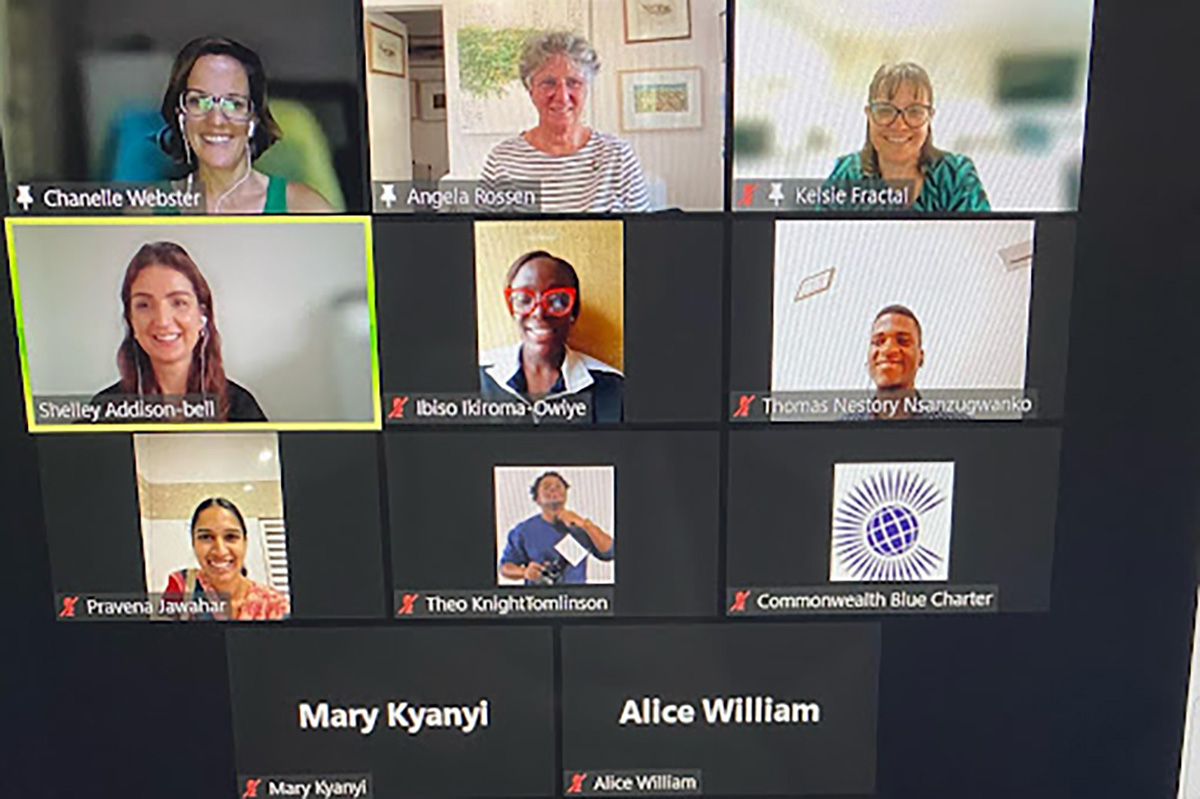“Post-Brexit UK – better trade for African countries?”
February 22 Does Brexit mean the UK will offer better trade agreements for African Commonwealth Countries, or will it be business as usual? Folmi Yohanna, 27, a Correspondent from Kano in Nigeria, writes that the UK could maintain the trade agreements equivalent to the deal.
Does Brexit mean the UK will offer better trade agreements for African Commonwealth Countries, or will it be business as usual? Folmi Yohanna, 27, a Correspondent from Kano in Nigeria, writes that the UK could maintain the trade agreements equivalent to the deal.
“Wow! So the Supreme Court will decide whether to reject or uphold the Government’s appeal against a High Court ruling, which blocked the royal prerogative from being used to trigger Brexit without first giving MPs a vote,” I was telling a colleague at the office.
“What is Brexit?” he replied.
I was shocked with his answer. Where was he when the UK people were campaigning ahead of the referendum back in June 2016?
Brexit referendum gained world-wide attention; even non Britons were carried away with the whole referendum. I must confess my sentiment tilted towards the “Leave” camp. I guess I was influenced by the fact that there may be a robust trade deal for African Commonwealth Countries, especially Nigeria. I rejoiced with the “Leave” camp after the results were announced. On a second thought, may be I shouldn’t get my hopes high about Brexit – or like my colleague at the office, I shouldn’t have bothered myself with the “Brexit Wahala.”
Africa is the continent that is home to the largest number of Commonwealth members, with 18 out of the 52. Are we going to witness a reinvigoration of UK trade with Africa, or is it just going to be business as usual?
The majority of Commonwealth countries – those located in Africa, the Caribbean and Pacific – were incorporated into the EU’s system of trade under the 1975 Lome’ convention, an arrangement provided for most Commonwealth countries in the Africa, Caribbean and Pacific (ACP) Countries.
Peg Murray-Evans, an associate lecturer and researcher in the Department of Politics, University of York, in her article “Return to the Common wealth? UK-Africa trade after Brexit will not be straightforward”, stated that the EU’s special relationship with ACP countries served to preserve and extend the UK’s links with this group of former colonies at a time when the Commonwealth was otherwise fractious and divided. She went further to state that the EU- ACP relationship of recent times has been tainted with controversial negotiation for free trade agreements, known as the Economic Partnership Agreements (EPAs). These negotiations, she said, have led to a patchwork of trade arrangements across Africa, in which some countries have signed Economic Partnership Agreements while others make use of unilateral duty free access to the EU market under the scheme called “Everything but Arms.”
A Nigerian paper in October 2016 reported that the former Speaker of the House of Representative Hon. Dimeji Bankole, announced as Honourary Vice President of Africa House and the Africa for Growth Initiative, made a call at the United Kingdom Houses of Parliament for renewal of trade between Nigeria and the UK. He challenged Britain to use its recent Brexit as a spur to build stronger reciprocal trading relations with Africa and especially Nigeria. Dimeji Bakole, like Peg Murray-Evans, stated that the relationship with EU including the UK was not straight forward. He stated that Nigeria benefits from the duty free access to the EU single market for good under the regional Lome’ Convention 1975, which the UK had sought to replace with a less favourable agreement, the Economic Partnership Agreement (EPA). He stated there are more pragmatic reasons for Nigeria and the UK to discuss more trade deals, because many British companies are already operating in Nigeria – in banking, telecoms, technology, energy sectors and many others.
From the foregoing, if post Brexit UK maintains trade agreements which were applicable under the EU, then there is nothing to be excited about the Brexit for African Commonwealth Countries, Nigeria in particular. Like my colleague, I should have turned a blind eye to Brexit, or will I say Brexit has indeed “pulled a Brexit on me” if no fresh deals will be offered to Commonwealth countries as supported by Peg Murray-Evans, and I quote “one might be forgiven for thinking that the wake of Brexit vote on 23 June we are about to witness a reinvigoration of UK trade links with Africa…”
However, all hope is not lost, as the process is still on going. If the UK will maintain the status quo for ACP countries especially Africa, then I humbly feel there should be a rethink. As Hon. Dimeji Bankole said “there are strong, pragmatic reasons for both Nigeria and the UK to start discussing a new, post Brexit trade between our countries…”
photo credit: Ted and Jen A ‘Leave’ stronghold (9/16 ar49) via photopin (license)
…………………………………………………………………………………………………………………
About me: I am legal practitioner practicing in Nigeria. I would love to be at the top of my career and hopefully, publish books. Also, be an agent of positive change in Nigeria and the world.
I love reading, practicing my profession, doing voluntary humanitarian activities, watching and playing of football and I love playing video games.
…………………………………………………………………………………………………………………
Opinions expressed in this article are those of the author and do not necessarily represent the views of the Commonwealth Youth Programme. Articles are published in a spirit of dialogue, respect and understanding. If you disagree, why not submit a response?
To learn more about becoming a Commonwealth Correspondent please visit: http://www.yourcommonwealth.org/submit-articles/
…………………………………………………………………………………………………………………




